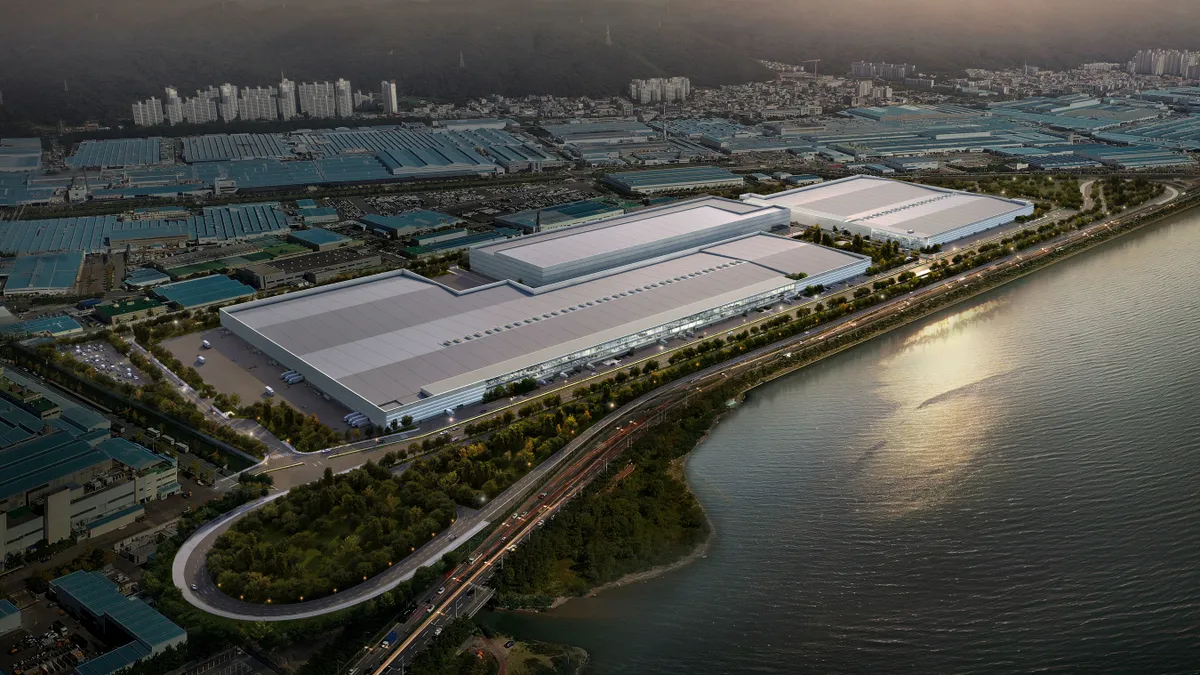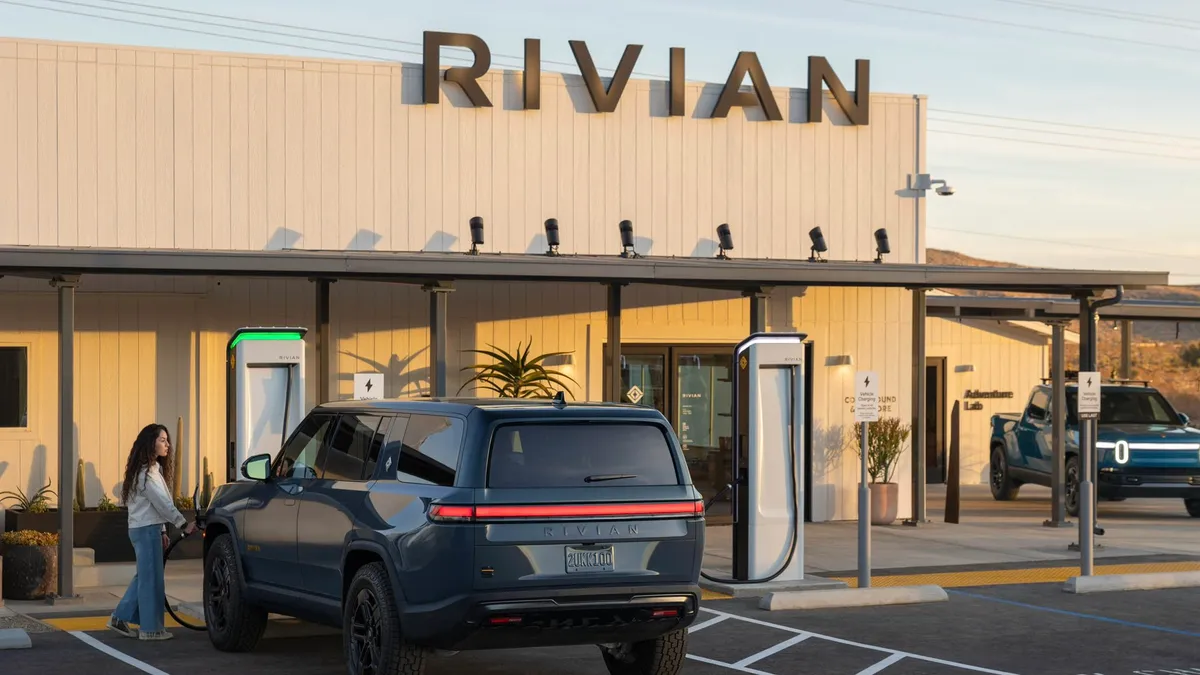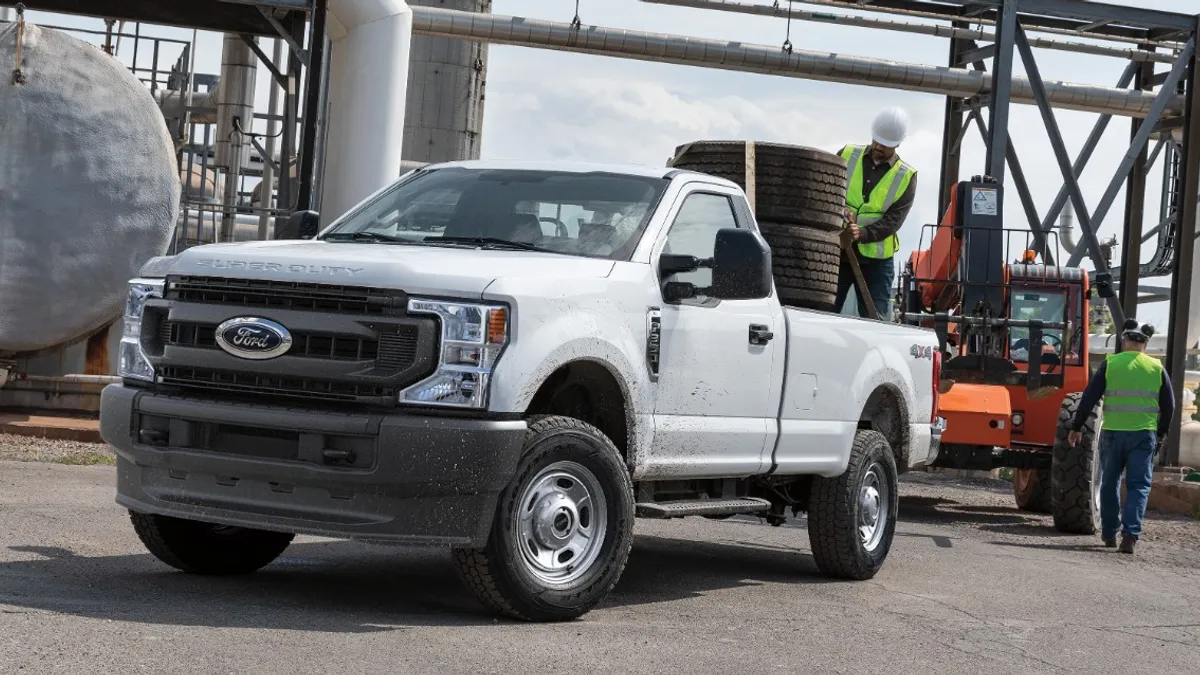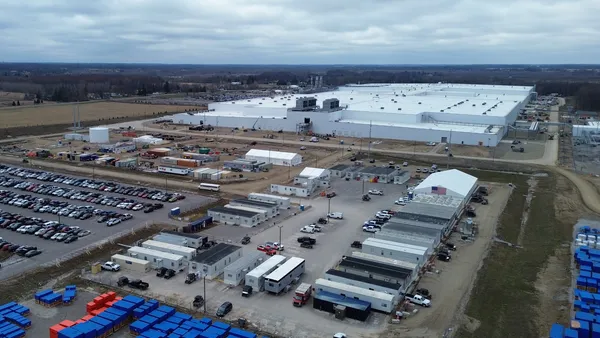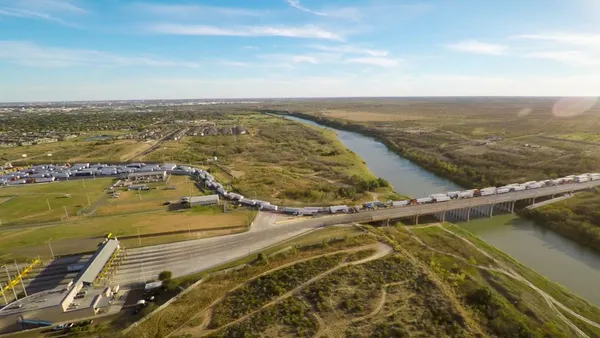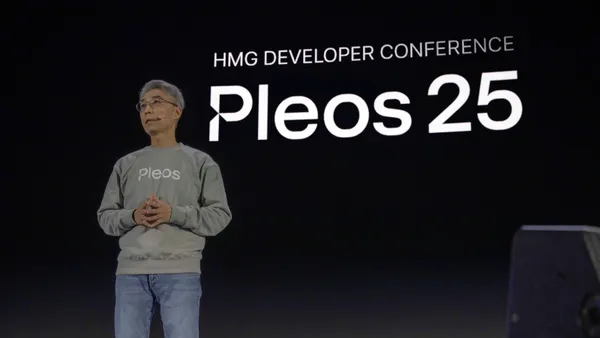Dive Brief:
- Hyundai plans to suspend vehicle production at its assembly plant in Asan, South Korea, the automaker said in a regulatory filing on Monday.
- Production will halt from Dec. 31 to Feb. 13, 2024, with normal operations expected to resume on Feb. 14.
- The temporary suspension will allow Hyundai to focus on the construction start of the automaker’s new EV plant in Ulsan, South Korea, which had its groundbreaking earlier this month.
Dive Insight:
Hyundai is investing $1.53 billion to build its new factory, which will serve as its main hub for EV production. The factory will have the capacity to produce 200,000 EVs per year once construction is completed, and mass production begins in the first quarter of 2026.
The new EV plant — Hyundai’s first new factory in South Korea in 29 years — is part of the automaker’s plans to take a bigger slice of the global EV market share. Hyundai’s EV strategy includes developing a next-generation modular EV architecture and boosting production capacity.
While U.S. automakers General Motors and Ford significantly scale back their EV plans, Hyundai said in June that it will invest $85 billion to increase vehicle production, develop advanced battery technology and launch its all-new modular EV vehicle architecture to significantly reduce production costs. Of this amount, around $28 billion will be dedicated to developing EVs and new battery technology.
Hyundai shared its current business strategy in June at the company’s CEO Investor Day, which includes increasing the company’s EV sales target to 2 million vehicles a year by 2030. The automaker also said its existing internal combustion engine vehicle assembly lines will produce EVs to reduce costs and time. Utilizing existing lines is faster than building new plants, according to Hyundai. Therefore, production can be ramped up more quickly to meet growing EV demand as needed.
In September, the automaker said it will invest an additional $2 billion to expand its joint battery cell plant in Georgia with its partner LG Energy Solution. The battery factory is adjacent to Hyundai’s upcoming $5.5 billion manufacturing campus in Georgia, which will have the capacity to produce 300,000 EVs annually when it goes online in 2025.



